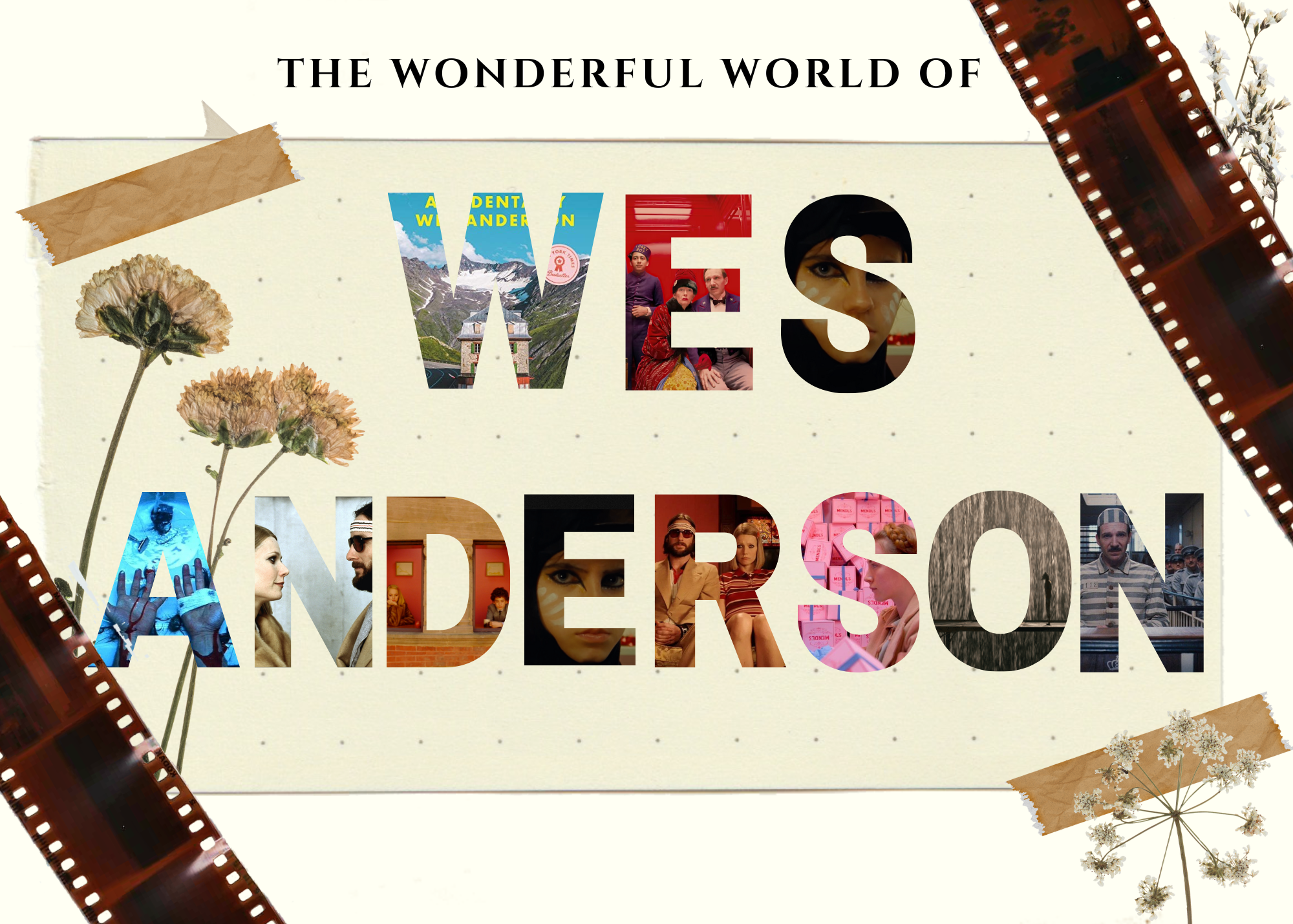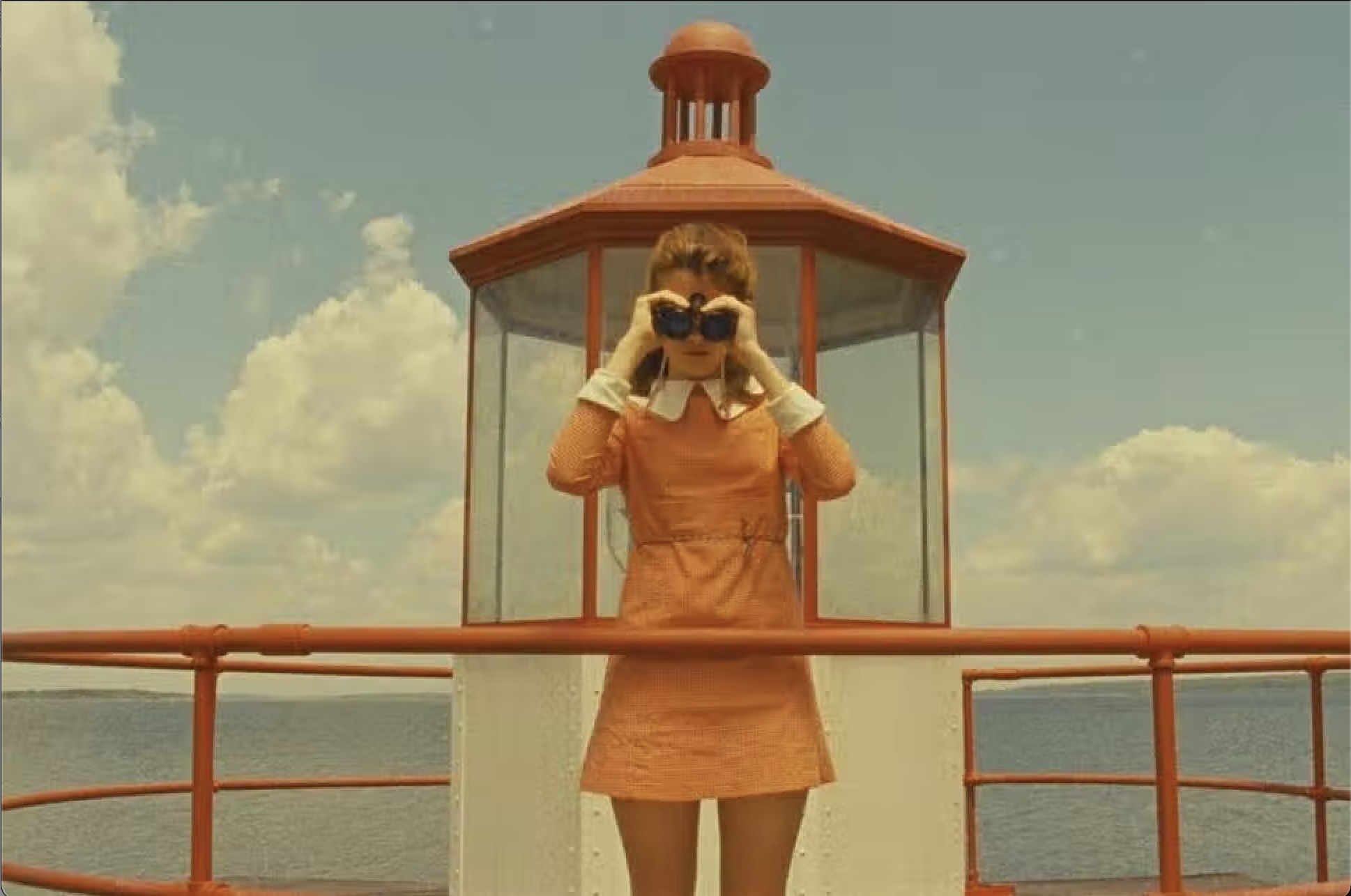
Wes Anderson is known for his unique style and has, in the last 15 years, pioneered what has become a popular subgenre of film. His work is full of dramatic plots with exciting picturesque pastel symmetry that keeps viewers' eyes glued to the screen. In this film review, we look at some of his top films, who is in them, and what makes them so special.
Fantastic Mr. Fox is acclaimed director Wes Anderson's first animation, specifically stop-motion, and it's, well, fantastic.
George Clooney's voice as the head fox of an animal clan that shouts diversity is straight out of Danny Ocean-- cool and witty with an
 overlay of sentimentality that would convince you to open your hen house door to let him have his way. That's after his little speech that tries existentialism on for size, foxwise that is: "Why a fox? Why not a horse, or a beetle, or a bald eagle? I'm saying this more as, like, existentialism, you know? Who am I?"
overlay of sentimentality that would convince you to open your hen house door to let him have his way. That's after his little speech that tries existentialism on for size, foxwise that is: "Why a fox? Why not a horse, or a beetle, or a bald eagle? I'm saying this more as, like, existentialism, you know? Who am I?"
As the animals pull a caper against farmer Bean (Michael Gambon) and his thugs, the animation pulls away from the gloom of another winner this year, Where the Wild Things Are, and confirms the fun of a well told beast fable with loads of anthropomorphism to reaffirm our love of humanity and confirm that animals, like us, will always be animals. The ease with which Anderson/Clooney convince that this stealing and mayhem are what animals do is a tribute to script and performance that seduce us into the stylistic den of thieves known as the fox lair and all its attitude and custom, sanctioned by mother nature herself.
Mr. Fox: "The cuss am I? Are you cussing with me?"
Badger (Bill Murray): "No, you cussing with me?" Mr. Fox: "Don't cussing point at me!"
- Bill Murray
- Jason Schwartzman
- Meryl Streep
It’s great news that critics and viewers are responding, with enthusiasm and ticket purchases, respectively, to “Moonrise Kingdom.”
It deserves both the acclaim and the popularity; for
 all its high style and exquisite artifice, it’s a tenderly romantic, warmly funny, and robustly physical story of young love and the lessons it holds for older lovers. It brings together many strands of cultural and personal memory, from the inside-the-tent view of boys being boys to the depiction of idiosyncratically smart and artistic kids feeling like outsiders at home to the red-coated narrator (Bob Balaban)
who prophetically sets the story in the vast setting of geographical history. In short, it’s an emotional, sensual, and intellectual feast, one of the most extraordinary cinematic experiences since—well, since Wes Anderson’s last movie, “Fantastic Mr. Fox,” and the continuity from that movie (and all of Anderson’s prior ones) to the new one is the proximate cause of this post.
all its high style and exquisite artifice, it’s a tenderly romantic, warmly funny, and robustly physical story of young love and the lessons it holds for older lovers. It brings together many strands of cultural and personal memory, from the inside-the-tent view of boys being boys to the depiction of idiosyncratically smart and artistic kids feeling like outsiders at home to the red-coated narrator (Bob Balaban)
who prophetically sets the story in the vast setting of geographical history. In short, it’s an emotional, sensual, and intellectual feast, one of the most extraordinary cinematic experiences since—well, since Wes Anderson’s last movie, “Fantastic Mr. Fox,” and the continuity from that movie (and all of Anderson’s prior ones) to the new one is the proximate cause of this post.
Anderson is one of the very few filmmakers whose images are instantly recognizable, whose name could even become adjectival, and there isn’t a shot in “Moonrise Kingdom” that seems anonymous or unidentifiable.
- Kara Hayward
- Edward Norton
- Bruce Willis
Very few filmmakers have as distinct a fingerprint as Wes Anderson. (There's an entire book called Accidentally Wes Anderson, made up of photographs from around the world of buildings and landscapes that look like Anderson shots.) There are two things that obsess him: objects and nostalgia. Prosaic everyday objects transform in the context of Anderson's miniaturized diorama world.
- Timothée Chalamet
- Tilda Swinton
- Owen Wilson
"The French Dispatch" doesn't delve into these characters' lives but instead focuses on their work, and the movie's structure is that of an issue of the magazine, where you literally step into the pages, and "read" three separate stories. But first, there is the Jacques-Tati-style opening sequence, clearly a riff on The New Yorker staple, "The Talk of the Town," with Herbsaint Sazerac (Owen Wilson, jaunty in a black beret and turtleneck) bicycling through Ennui-sur-Blasé, showing us the sights (and speaking directly to the camera, causing some unfortunate collisions).
 In a cliched film, nostalgia expresses itself in a golden glow (assumed to be universal). Anderson's nostalgia isn't like that. His is extremely specific. There's a reason some people find his work alienating. It’s an odd but effective tale. Romantic, yes; sad, yes; even a little kinky. The Baldwin-inspired final chapter, about Roebuck Wright, somehow outdoes it. Anderson seems to know that Baldwin’s essay “Equal in Paris” (published in Notes from a Native Son) is a touchstone example of an expat wrestling with conflicting feelings of love and alienation for homes both old and new. So this chapter — a firsthand account of the kidnapping of a police commissioner’s son that was supposed to be a story about the commissioner’s extraordinary personal chef — emerges as yet another kind of story: the lonely rumination of an outsider. Loneliness is a thread that links the French Dispatch writers’ lives, even that of big-toothed Tilda’s Swinton’s chic art expert.
In a cliched film, nostalgia expresses itself in a golden glow (assumed to be universal). Anderson's nostalgia isn't like that. His is extremely specific. There's a reason some people find his work alienating. It’s an odd but effective tale. Romantic, yes; sad, yes; even a little kinky. The Baldwin-inspired final chapter, about Roebuck Wright, somehow outdoes it. Anderson seems to know that Baldwin’s essay “Equal in Paris” (published in Notes from a Native Son) is a touchstone example of an expat wrestling with conflicting feelings of love and alienation for homes both old and new. So this chapter — a firsthand account of the kidnapping of a police commissioner’s son that was supposed to be a story about the commissioner’s extraordinary personal chef — emerges as yet another kind of story: the lonely rumination of an outsider. Loneliness is a thread that links the French Dispatch writers’ lives, even that of big-toothed Tilda’s Swinton’s chic art expert.
This delirious operetta-farce is an eerily detailed and very funny work from the savant virtuoso of American indie cinema, Wes Anderson. It is set in the fading grandeur of a preposterous luxury hotel in an equally preposterous pre-war central European country, the fictional Zubrowka.
- Bill Murray
- Tilda Swinton
- Tony Revolori
- Edward Norton
Gustave is energetic and exacting, taking a passionate pride in the high standards of his establishment and ruling the staff with a rod of iron. Like them, he is kitted out in a Ruritanian purple livery which matches the hotel's decor.
The infatuated Madame D infuriates her sinister son Dmitri (Adrien Brody) by leaving Gustave, in her will, a priceless Renaissance portrait belonging to her family.  Gustave is thus to face the family's fanatical attempts to disinherit this counter jumper, involving her butler, Serge (Mathieu Amalric) and Zero's courageous fiancee, Agatha (Saoirse Ronan), who works in the local Viennese-style patisserie.
Gustave is thus to face the family's fanatical attempts to disinherit this counter jumper, involving her butler, Serge (Mathieu Amalric) and Zero's courageous fiancee, Agatha (Saoirse Ronan), who works in the local Viennese-style patisserie.
As ever, Anderson's world is created like the most magnificent full-scale doll's house; his incredible locations, interiors and old-fashioned matte-painting backdrops sometimes give the film a look of a magic-lantern display or an illustrated plate from a book.
It makes the audience feel like giants bending down to admire a superbly detailed little universe: I can't think of any film-maker who brings such overwhelming control to his films.